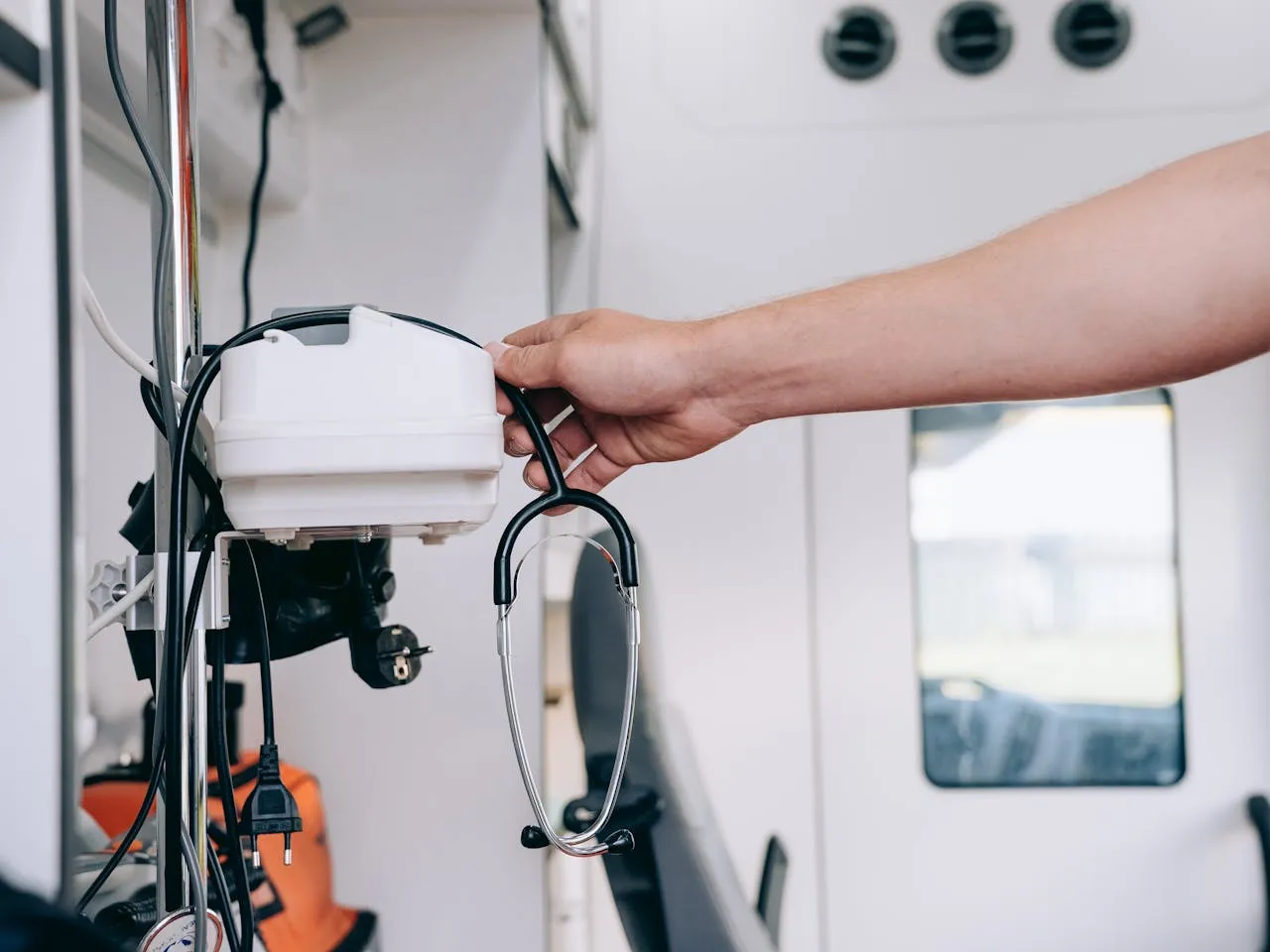DATROWAY® Demonstrates Significant Survival Benefit Over Chemotherapy in First-Line Metastatic Triple-Negative Breast Cancer in TROPION-Breast02 Trial
Positive results from the pivotal TROPION-Breast02 phase 3 trial have shown that DATROWAY® (datopotamab deruxtecan) delivers a statistically significant and clinically meaningful improvement in both overall survival (OS) and progression-free survival (PFS) compared to investigator’s choice of chemotherapy. The trial enrolled patients with locally recurrent inoperable or metastatic triple-negative breast cancer (TNBC) who were not eligible for immunotherapy. These late-breaking results were presented today during a proffered paper session (LBA21) at the 2025 European Society for Medical Oncology (#ESMO25) Congress.
DATROWAY is a TROP2-directed DXd antibody-drug conjugate (ADC), discovered by Daiichi Sankyo (TSE: 4568) and being developed and commercialized in collaboration with AstraZeneca (LSE/STO/Nasdaq: AZN). The therapy is designed to selectively deliver a potent cytotoxic payload to cancer cells expressing TROP2, a protein commonly overexpressed in TNBC, while minimizing systemic toxicity.
In the trial, DATROWAY demonstrated a median overall survival of 23.7 months, compared with 18.7 months for patients receiving standard chemotherapy—a five-month improvement. The hazard ratio (HR) was 0.79, with a 95% confidence interval (CI) of 0.64–0.98, and a p-value of 0.0291, confirming statistical significance. These results represent a substantial clinical advance for patients with metastatic TNBC who are not candidates for immunotherapy, a population historically facing poor outcomes.
In addition to OS benefits, DATROWAY showed a marked reduction in the risk of disease progression or death. As assessed by blinded independent central review (BICR), the median progression-free survival was 10.8 months for patients treated with DATROWAY versus 5.6 months for chemotherapy, corresponding to a 43% reduction in risk (HR=0.57; 95% CI: 0.47–0.69; p<0.0001). This demonstrates that DATROWAY not only prolongs life but also meaningfully delays disease progression.
The therapy also showed durable responses. The confirmed objective response rate (ORR) was 62.5% for DATROWAY, including 29 complete responses (CRs) and 173 partial responses (PRs), compared to 29.3% for chemotherapy (8 CRs and 86 PRs). The median duration of response (DoR) exceeded one year at 12.3 months with DATROWAY versus 7.1 months with chemotherapy, highlighting the durability of its clinical benefit.
TROPION-Breast02 included patients with tumors both expressing and not expressing PD-L1, who could not receive immunotherapy for various reasons. As of the data cut-off on August 25, 2025, 45 patients (14%) remained on DATROWAY treatment, compared to eight patients (3%) in the chemotherapy arm, further indicating its tolerability and sustained benefit.
“In TROPION-Breast02, datopotamab deruxtecan meaningfully extended patients’ lives and nearly doubled their time without disease progression,” said Rebecca Dent, MD, FRCP, Professor and Deputy Chief Executive Officer at the National Cancer Centre Singapore, and Principal Investigator for the trial. “These are significant outcomes for patients with metastatic triple-negative breast cancer who are not suitable candidates for immunotherapy. Remarkably, the trial included a subset of patients with highly aggressive disease who are often excluded from research in this setting.”
Patients receiving DATROWAY were treated for a longer median duration than those receiving chemotherapy—8.5 months versus 4.1 months, respectively. DATROWAY was also associated with a lower rate of treatment-related adverse events (TRAEs) leading to discontinuation (4% versus 7%). Grade 3 or higher TRAEs occurred in 33% of DATROWAY patients versus 29% for chemotherapy, with the most common events being neutropenia, stomatitis, leukopenia, fatigue, anemia, and vomiting. One grade 5 case of interstitial lung disease (ILD) was reported in the DATROWAY arm, adjudicated as drug-related but with the cause of death attributed to disease progression.
“Patients with metastatic triple-negative breast cancer have one of the poorest prognoses of any breast cancer subtype,” said Ken Takeshita, MD, Global Head of R&D at Daiichi Sankyo. “For those not eligible for immunotherapy, chemotherapy has long been the standard first-line treatment. The TROPION-Breast02 results suggest that DATROWAY has the potential to replace traditional chemotherapy and meaningfully improve survival outcomes.”
Susan Galbraith, MBBChir, PhD, Executive Vice President of Oncology Hematology R&D at AstraZeneca, added, “The trial results show for the first time that these TNBC patients may have an alternative to chemotherapy in the first-line setting that can both delay disease progression and extend survival. DATROWAY’s efficacy as monotherapy in the metastatic setting gives us confidence in its potential in combination with durvalumab and in early-stage, potentially curative settings, where additional studies are ongoing.”
Summary of TROPION-Breast02 Key Results
| Efficacy Measure | DATROWAY (n=323) | Chemotherapy (n=321) |
|---|---|---|
| Median OS, months (95% CI) | 23.7 (19.8–25.6) | 18.7 (16.0–21.8) |
| HR (95% CI) | 0.79 (0.64–0.98) | — |
| p-value | 0.0291 | — |
| Median PFS by BICR, months (95% CI) | 10.8 (8.6–13.0) | 5.6 (5.0–7.0) |
| HR (95% CI) | 0.57 (0.47–0.69) | — |
| p-value | <0.0001 | — |
| Confirmed ORR, % | 62.5 | 29.3 |
| CR, n (%) | 29 (9.0) | 8 (2.5) |
| PR, n (%) | 173 (53.6) | 86 (26.8) |
| Median DoR, months (95% CI) | 12.3 (9.1–15.9) | 7.1 (5.6–8.9) |
Beyond TROPION-Breast02, Daiichi Sankyo and AstraZeneca continue to evaluate DATROWAY across multiple TNBC settings. Updated results from the BEGONIA phase 1b/2 trial presented at ESMO demonstrated robust anti-tumor activity when DATROWAY was combined with AstraZeneca’s anti-PD-L1 therapy durvalumab, particularly in patients with high PD-L1 expression. These findings support the therapy’s potential in combination regimens across PD-L1 expression levels.
Three additional phase 3 trials are ongoing:
- TROPION-Breast03 evaluates DATROWAY as adjuvant therapy with or without durvalumab versus standard therapy in stage I–III TNBC with residual invasive disease post-neoadjuvant treatment.
- TROPION-Breast04 compares neoadjuvant DATROWAY plus durvalumab versus neoadjuvant pembrolizumab plus chemotherapy in stage II–III TNBC and HR-low/HER2-low/negative breast cancer.
- TROPION-Breast05 assesses first-line DATROWAY with or without durvalumab versus standard therapy in PD-L1-expressing metastatic TNBC.
These results represent a significant milestone in the development of targeted therapies for TNBC, offering new hope for patients with limited treatment options and paving the way for broader applications of DATROWAY across multiple stages of disease.



